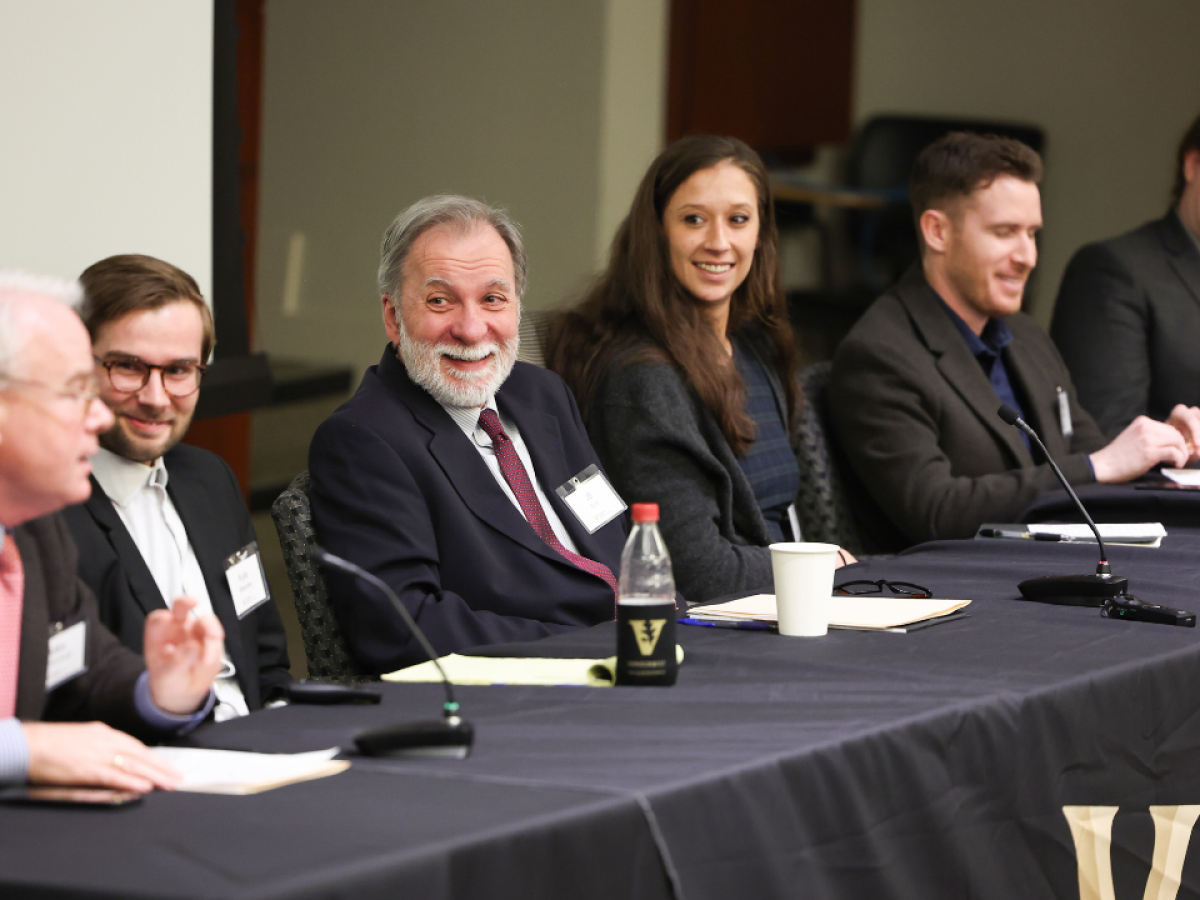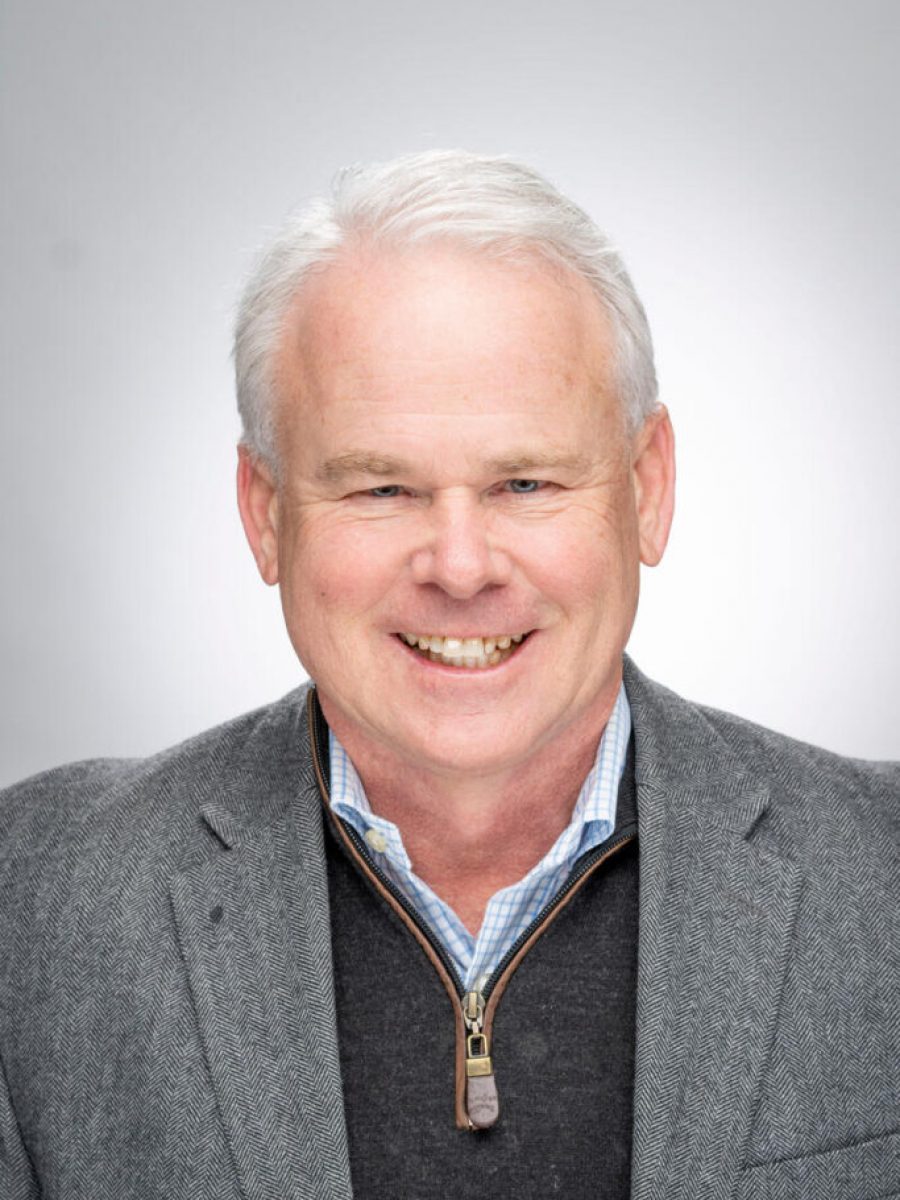Climate Change Research Network
Climate change is widely regarded as one of the most difficult problems facing modern society. Developing legal, economic, and social responses requires interdisciplinary research that is theoretically sophisticated and policy-relevant.

The Climate Change Research Network at Vanderbilt includes a team of faculty and graduate students who are conducting theoretical and applied research on one of the most important and most widely overlooked sources of greenhouse gases: individual and household behavior. The research also explores how insights from law and the social and behavioral sciences can reduce corporate carbon emissions.
David Daniels Allen Distinguished Chair in Law
J.B. Ruhl
“I'm very impressed with way schools at Vanderbilt work together to address complex environmental problems. The Climate Change Research Network is a good example; it's an interdisciplinary collaboration that involves Vanderbilt Law School, Vanderbilt Institute for Energy and the Environment, Owen Graduate School of Management, the School of Engineering, science departments, and the Human and Organizational Development program. I wanted to be a part of that.”
Research
Participants in the Climate Change Research Network are examining questions such as:
- What are the aggregate emissions from individuals and households, and how do those emissions compare to the emissions from industry and other source categories?
- Which individual behaviors release the greatest amounts of greenhouse gas emissions?
- What are the greenhouse gas emissions from motor vehicle idling and how can they be reduced?
- How do personal carbon calculators vary in their outputs and conversion factors?
- Which social psychological theories have the greatest explanatory power for greenhouse gas-emitting behaviors?
- How do people perceive and value climate change risks, particularly when they are remote?
- How do myths affect household carbon emissions?
- What role do legacy concerns play in individuals' response to climate change?
- How should these climate change risks be valued for policy benefit assessments?
- What strategies are chosen by those policy advocates and to what extent are these strategies constrained by the political system in which they evolve?
- What changes in laws and policies can generate the most cost-effective reductions in greenhouse gas emissions from individual behavior?
- What changes in the administration and staffing of government agencies will be required if climate change laws and policies are adopted?
- What role can private institutions play in reducing carbon emissions?
Scholarship
Project activities have been supported by Vanderbilt Law School's Energy, Environment and Land Use Program.
Private industry needs to step up on climate change
Beyond Politics
In a new book, Michael Vandenbergh and co-author Jonathan M. Gilligan, associate professor of earth and environmental science, make the case for how the private sector and businesses can fill the environmental gap.
Selected Publications
Affiliated Faculty, Research Associates & Students
- Brooke Ackerly, Department of Political Science, Vanderbilt University
- Joe Bandy, Center for Teaching, Sociology, Peabody College, Vanderbilt University
- Jack Barkenbus, Associate Director CCRN, Vanderbilt Institute for Energy and Environment
- Lisa Bressman, Environmental Law Program, Vanderbilt Law School
- Nick Brill, law student, Vanderbilt Law School
- Amanda Carrico (MA'05, PhD'09), Environmental Studies, University of Colorado - Boulder (former VIEE/CCRN Postodoctoral Research Fellow)
- James Clarke, Civil and Environmental Engineering, Vanderbilt University
- Mark A. Cohen, Owen Graduate School of Management, Vanderbilt University
- Jennifer Cole, Postdoctoral Scholar, Social Psychology
- Kelsey Craig, law student, Vanderbilt Law School
- Douglas Fisher, Department of Electrical Engineering and Computer Science, Vanderbilt University
- James Fraser, Department of Human and Organizational Development, Vanderbilt University
- Jonathan Gilligan, Department of Earth & Environmental Sciences, Vanderbilt University
- Ash Gillis, Postdoctoral Scholar, Social Psychology Climate Change Research Network Law School
- Travis Gray, law student, Vanderbilt Law School
- George Hornberger, Department of Civil and Environmental Engineering, Vanderbilt University
- Leslie D. Kirby, Director of Undergraduate Studies & Senior Lecturer in Psychology, Vanderbilt University
- Kaitlin Toner Raimi, CCRN/VIEE Postdoctoral Research Fellow, Vanderbilt University
- Jim Rossi, Professor of Law, Vanderbilt Law School
- J.B. Ruhl, David Daniels Allen Distinguished Chair in Law, Professor of Law, Vanderbilt Law School
- Lanka Thabrew, systems engineer, Western Power, Perth Australia (former VIEE Postodoctoral Research Fellow)
- Heather Truelove, Psychology, University of North Florida (former VIEE/CCRN Postodoctoral Research Fellow)
- Michael Vandenbergh, Energy, Environment and Land Use Program, Vanderbilt Law School
- W. Kip Viscusi, Law & Economics Program, Vanderbilt Law School
- Kenneth Wallston, Vanderbilt University School of Nursing
- Matthew Zaragoza-Watkins, Department of Economics, Vanderbilt University
